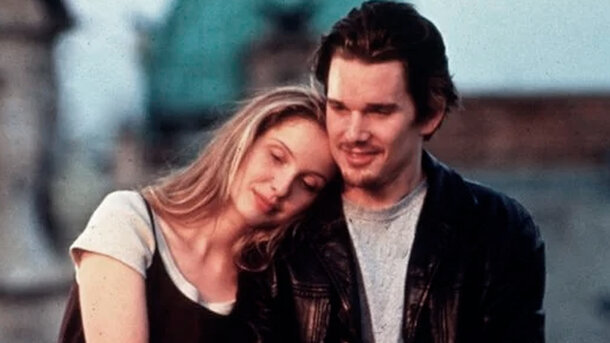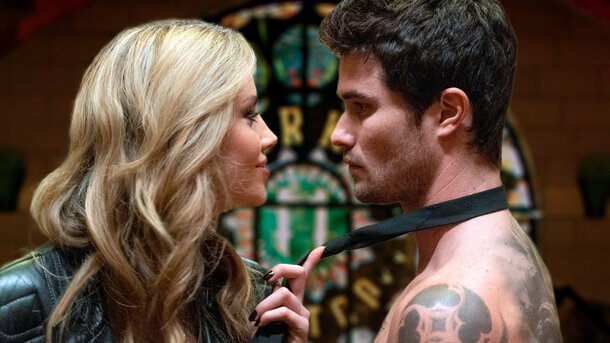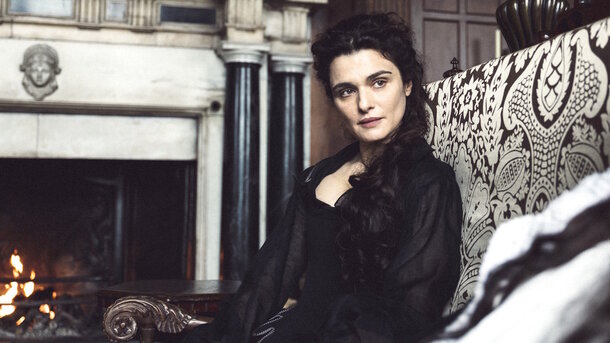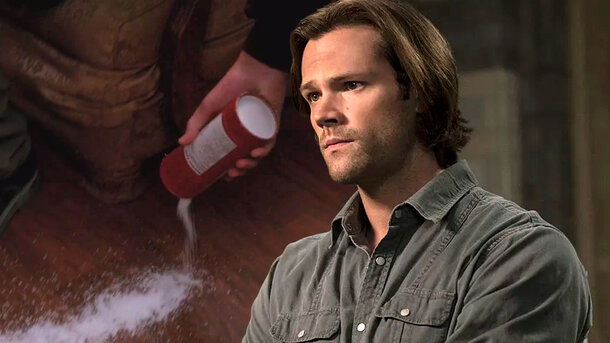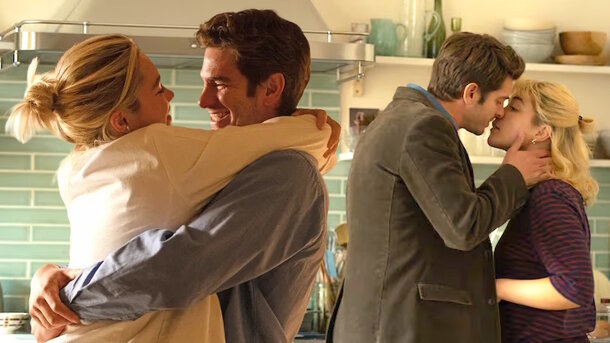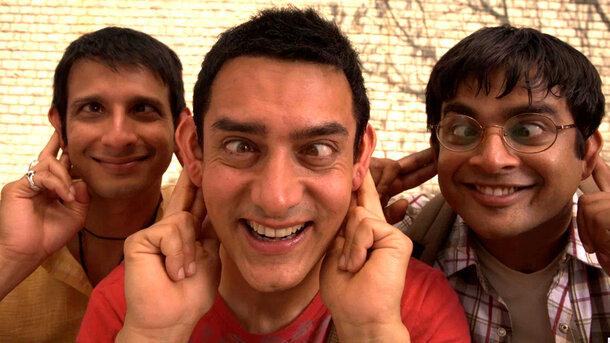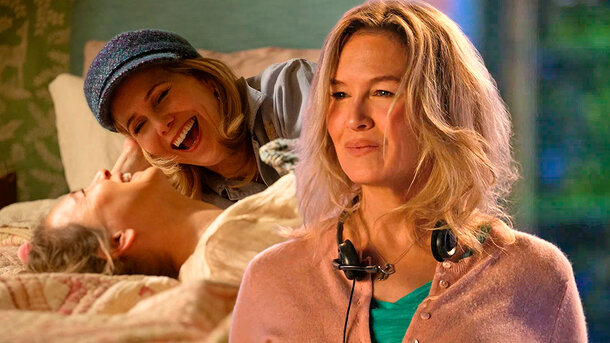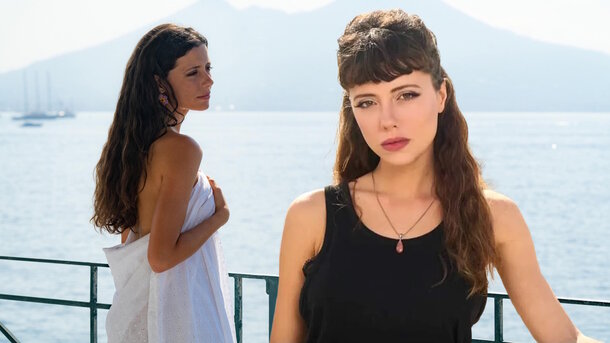There’s something about Three Colors: White (Trois Couleurs: Blanc, 1994) that lingers long after the credits roll. I went in expecting a melancholic meditation on equality — after all, that’s the thematic anchor of Krzysztof Kieślowski’s iconic Three Colors trilogy — but what I got instead was a cunning, darkly comic fable of humiliation, revenge, and unexpected triumph. It’s the most underrated installment of the trilogy, yet possibly the most fascinating.
Plot Without Spoilers — Just Enough to Intrigue You
The film follows Karol Karol (played by Zbigniew Zamachowski), a hapless Polish hairdresser living in Paris whose life crumbles when his French wife, Dominique (Julie Delpy), divorces him. And when I say crumbles, I mean completely disintegrates — he’s left homeless, broke, and humiliated. But Karol isn’t your typical tragic figure. Instead of wallowing in self-pity, he embarks on an absurd yet gripping journey to reclaim his dignity, and in the process, he orchestrates one of the most cunning comebacks in cinema.
At its core, White is a story about power — who has it, who loses it, and what happens when the tables turn. Unlike Blue (which is soaked in grief) and Red (which feels like a cosmic puzzle), White is an offbeat, almost satirical take on the theme of equality. The question is: does equality really exist in love, justice, or even personal revenge?
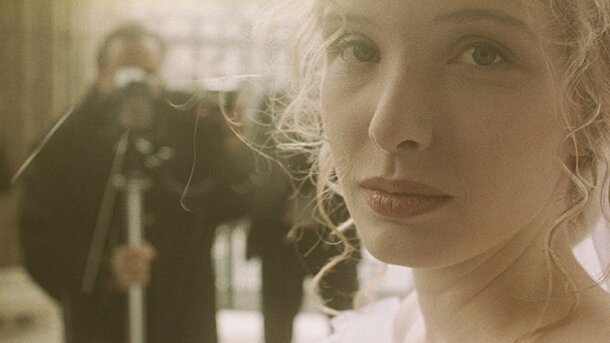
Kieślowski’s Masterstroke — A Director’s Subversion of Expectations
Kieślowski does something sneaky here — he makes us laugh when we least expect it. The film begins as a depressing tragedy, but before you know it, Karol’s misfortunes turn into an absurdist comedy of errors. The shift is so subtle that you don’t realize when you’ve stopped pitying him and started rooting for his wild scheme.
This tonal balancing act is what makes White stand out from the trilogy. It’s also visually striking — where Blue was cold and Red was passionate, White gives us stark, wintry landscapes and bleak interiors, reflecting Karol’s emotional exile. But pay attention: as he regains control, the cinematography warms up, subtly reinforcing his transformation.
Performances That Stick With You
Zbigniew Zamachowski delivers one of the most quietly brilliant performances I’ve ever seen. His Karol starts as a beaten-down everyman, but by the end, he’s practically unrecognizable — not just physically but in sheer presence. His transformation is so nuanced that you can’t pinpoint the exact moment he shifts from pathetic to powerful.
Julie Delpy, though given limited screen time, is mesmerizing as Dominique. She plays her role with an icy detachment that makes Karol’s obsession with her even more unsettling. Their dynamic is haunting — what starts as love disintegrates into something murky, where neither character is entirely innocent.
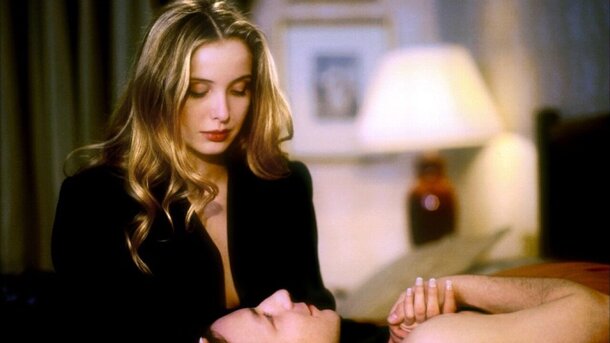
Themes & Symbolism — A Chess Game of Morality
If Blue was about grief and Red about fate, then White is about retribution. But don’t expect a simple morality tale. Kieślowski doesn’t hand out clear answers. Instead, he leaves us questioning the very idea of justice. Is Karol’s revenge justified? Does Dominique deserve it? Or are both of them just casualties of a larger, more cynical game?
One of the most fascinating symbols in the film is money. At the start, Karol is completely powerless because he has nothing. But as soon as he gains wealth, he manipulates the system just as ruthlessly as it manipulated him. Equality, in White, is a transactional concept — it exists only if you can afford it.
Final Verdict — Why You Need to Watch It
I’ll be honest — this is the Three Colors film I underestimated the most before watching it, and it ended up being the one I couldn’t stop thinking about. It’s sharp, darkly funny, and unexpectedly poignant. Kieślowski takes what could have been a bleak tale of failure and turns it into a bizarre, poetic journey toward redemption.
Would I recommend it? Absolutely — especially if you’re fascinated by films that blur the line between tragedy and comedy. White is both a cautionary tale and a victory lap, making you question who, in the end, really wins.
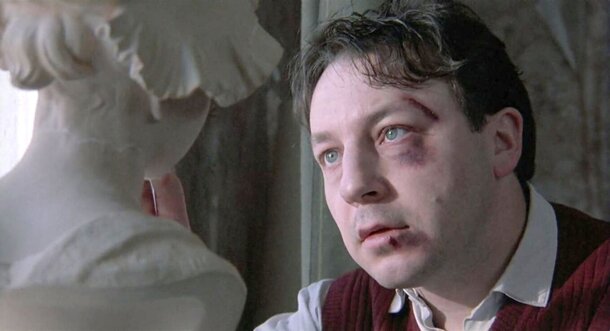
IMDb Rating & Production Details
- IMDb Rating: To be fact-checked by client for accuracy
- Director: Krzysztof Kieślowski
- Budget: To be fact-checked
- Awards & Nominations: To be fact-checked
If you love clever storytelling, layered characters, and endings that leave you unsettled in the best way, Three Colors: White is an absolute must-watch. You’ll never look at the idea of “equality” the same way again.


